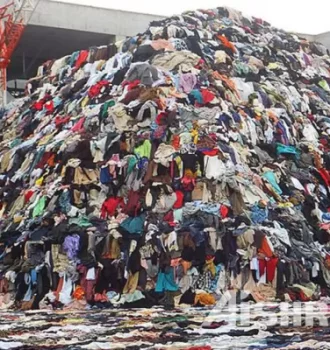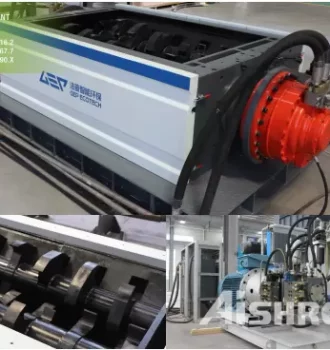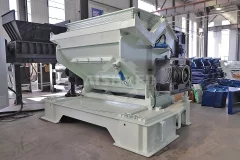
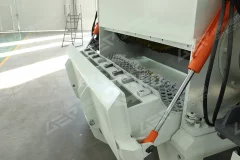
A client from Africa recently visited GEP ECOTECH to explore advanced solid waste shredding solutions. Having used Lindner single-shaft shredders for years to process plastic films and blocks, the client found their existing equipment could no longer meet increasing capacity and efficiency demands. After touring GEP EOCTECH's facility and seeing the GSE-3 series European version single shaft fine shredder in action, they were impressed by its smart features, robust design, and overall performance—recognizing it as a strong alternative to their current Lindner system.Key Advantages of the GSE Series European Version Single Shaft Fine ShredderThe GSE series combines advanced engineering, robust design, and intelligent control systems to deliver next-level performance and reliability. Its core advantages include:1. High Power Output and Superior ThroughputDriven by motors ranging from 90kW to 220kW, the shredder can process a wide range of plastic and solid waste materials. Depending on the type of material, scr
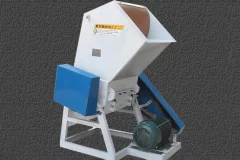
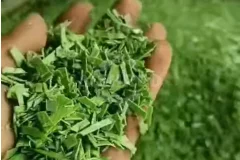
In the face of rising plastic waste, especially lightweight and flexible materials like PET bottles, PE films, and PP woven bags, the need for reliable, small-scale shredding equipment is growing rapidly. GEP ECOTECH's small shredder machine for plastic is engineered to provide a compact, cost-effective, and efficient solution for processing various soft and rigid plastic wastes, making it an ideal choice for recyclers, manufacturers, and community-based sorting facilities.Versatile Applications Across Plastic Waste Streams GEP ECOTECH's small plastic shredder is suitable for handling a wide variety of plastic waste streams, including PET bottles, PE films (such as stretch film, agricultural film, and plastic bags), and PP woven bags, as well as other rigid plastics like small containers, pipes, caps, and trays. This flexibility makes it an ideal solution for use in plastic recycling plants, film and packaging waste stations, injection and extrusion waste recovery lines, community recycling centers, small wor
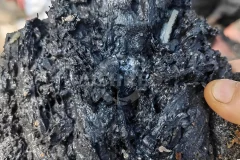
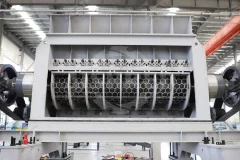
Plastic Lumps Shredder for Sale
2025-04-20For many plastic manufacturers, plastic lumps and purging waste are a real headache. These solid, irregular, and oversized chunks—generated during injection molding, extrusion purging, or machine clean-outs—are hard to manage and even harder to recycle without the right equipment.Traditional granulators can’t handle these large, dense pieces efficiently. That’s where GEP ECOTECH’s specialized plastic lump shredders come in—turning difficult waste into valuable resources. PP (Polypropylene) LumpsTailored Shredding Solutions: Choose What Fits Your NeedsWe offer two main types of shredders for handling plastic lumps, blocks, and purging waste. Each is designed for different materials, throughput, and output goals.Dual-Shaft Shear ShredderHeavy-duty performance for irregular and tough plastic lumpsTwin shafts rotate at low speed and high torque, ideal for tearing through thick lumps and start-up purge blocks.Excellent for contaminated, mixed, or oversized materials that are too difficult for granulators.Simple,
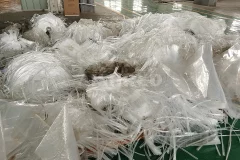
In the realm of plastic recycling, particularly in the treatment of Low-Density Polyethylene (LDPE) film scrap, the choice of shredding machines plays a pivotal role in determining efficiency, throughput, and overall recycling success. This article delves into various types of LDPE film scrap shredding machines, highlighting their characteristics and contributions to sustainable plastic waste management.Single-Shaft ShreddersOverview: Single-shaft shredders are fundamental in LDPE film scrap recycling. They feature a single rotating shaft equipped with robust blades designed to cut, tear, and shear the material into smaller pieces.Advantages: The output size is smaller, cost-effectiveness, and versatility for general plastic shredding applications.Dual-Shaft ShreddersOverview: Dual-shaft shredders elevate shredding efficiency with two interlocking shafts, each equipped with blades. This configuration provides a more controlled and thorough shredding process for LDPE film scrap.Advantages: Enhanced throughput
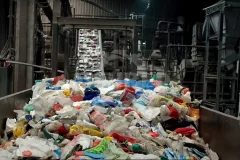
In the contemporary world of manufacturing and waste management, the plastics industry faces ongoing challenges in terms of recycling and reprocessing. The advent of advanced shredders and granulators has opened up new pathways for efficiently handling plastic waste. These machines play a pivotal role in the recycling process, transforming bulky plastic waste into manageable, reusable forms.The Role of Shredders in Plastic RecyclingShredders are essential for the initial stage of the plastic recycling process. They are designed to break down large, rigid plastic items into smaller pieces. This size reduction is crucial as it facilitates easier handling and sorting of the materials. Modern shredders are equipped with robust cutting mechanisms and are engineered to handle a wide range of plastic products, from rigid PVC pipes to softer materials like PET bottles.Granulators: Taking Recycling a Step FurtherFollowing shredding, granulators come into play. These machines finely grind the shredded plastic
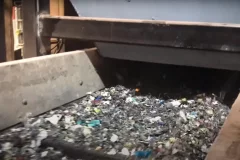
Types of Waste Plastics Suitable for SRFSolid Recovered Fuel (SRF) can be derived from various waste plastics. Plastics suitable for SRF typically include:Polyethylene Terephthalate (PET): Commonly used in water and soft drink bottles.High-Density Polyethylene (HDPE): Used in milk jugs, detergent bottles, and some plastic bags.Low-Density Polyethylene (LDPE): Found in plastic wraps, grocery bags, and various containers.Polyvinyl Chloride (PVC): Used in pipes, window frames, and flooring.Polypropylene (PP): Found in food containers, packaging materials, and bottle caps.Polystyrene (PS): Used in foam cups, packaging, and disposable cutlery.Mixed Plastics: Assorted plastic materials that might not be suitable for recycling individually but can be used in SRF production.
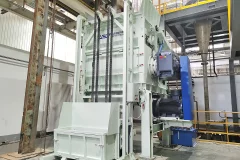
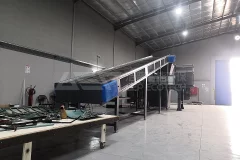
In recent years, the United Arab Emirates (UAE) has been progressively prioritizing sustainability initiatives to combat environmental challenges, particularly in managing plastic waste. One crucial technology aiding this mission is the plastic crushing machine.Plastic crushing machines play a pivotal role in the UAE's waste management infrastructure. These innovative devices efficiently break down plastic materials into smaller pieces, facilitating the recycling process. This process not only reduces the volume of plastic waste but also transforms it into reusable raw materials, contributing significantly to a circular economy.Types of plastic crushing machines commonly used in UAEIn the United Arab Emirates (UAE), various types of plastic crushing machines are employed to effectively manage and recycle plastic waste. Here are some commonly used types:Double-Shaft Plastic Shredder: Double-shaft shredders feature two parallel shafts with interlocking blades that work together to shred plastic waste. These
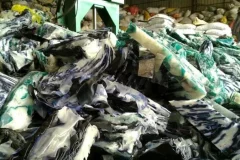
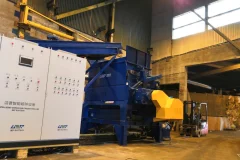
When dealing with production waste, plastic manufacturers traditionally face three choices: dispose of it, sell it, or reuse it. Regardless of the option chosen, some form of reprocessing is usually required. Embracing the circular economy, many processors are now adopting in-house scrap reclaim/reprocessing operations to extract the full potential from their production scrap.Why Choose In-House Scrap Reclaim?Reduce Reliance on Virgin Plastics: Reclaiming your production waste allows you to decrease dependence on costly virgin plastics.Quality Control: Take charge of your product quality, ensuring it meets your exacting standards instead of relying on a toll processor or purchasing reprocessed material in the open market.Cost Efficiency: Cut down on storage, transportation, and disposal costs while generating additional revenue by processing scrap from other plastics producers.Shredding: A Vital First StepSize reduction via shredding is a fundamental initial phase in most reprocessing programs. By reducing
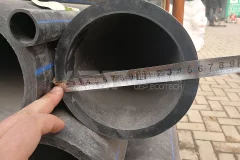
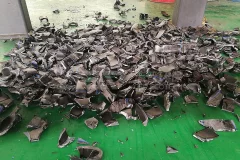
An HDPE(High-Density Polyethylene) pipe shredder is a specialized machine designed to shred or break down discarded or unused HDPE pipes into smaller pieces or granules. This shredding process facilitates recycling or repurposing the HDPE material for various applications.Features of an HDPE Pipe ShredderRobust Cutting Mechanism: These shredders typically employ sharp blades or cutters specifically designed to slice through HDPE pipes efficiently.High Crushing Capacity: HDPE pipe shredders are equipped with powerful motors and robust structures to handle large volumes of pipes effectively.Durable Construction: They are built to withstand the tough demands of shredding HDPE pipes, ensuring long-term operation and reliability.Safety Measures: Modern shredders include safety features to prevent accidents and ensure operator safety during operation.Common Types of HDPE Pipe ShreddersThere are various types of HDPE pipe shredders, which can be divided into the following main types according to different
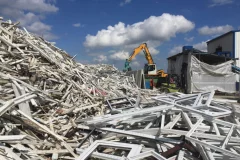
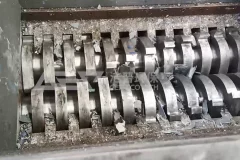
The crushing process of PVC doors and windows usually requires the selection of a suitable shredder to effectively break down the PVC material into smaller particles or fragments. For the crushing of PVC doors and windows, the following are two commonly used shredder types:Dual-shaft shredder (double-shaft shearing shredder)Dual-shaft shredders are usually used to process hard, large and elastic materials, such as PVC door and window frames. It consists of two rotating shafts, each equipped with sharp blades that rotate and cut the material into small pieces. This type of shredder can effectively break PVC door and window frames into particles or fragments suitable for subsequent processing.Pellet Shredder (Granulator)Pellet Shredder is used to reprocess smaller PVC shreds into uniform pellets. This helps prepare high-quality PVC pellets for use in the manufacturing of new products or other applications. The pellet shredder ensures the consistency and reprocessability of PVC materials.Which shredder to
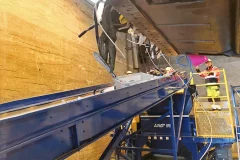
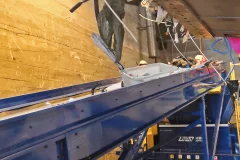
Plastic Waste Processing
2023-09-01Plastic pollution is one of the most pressing environmental challenges of our time. Microplastic particles have been discovered in the bodies of many marine animals. Processing and recycling plastics not only reduces pollution but also conserves natural resources. Moreover, it's a profitable endeavor.Humans have invented various types of plastics, including polyethylene, polypropylene, polyvinyl chloride, polystyrene, and more. These polymer compounds are all recyclable and should not be disposed of or left in landfills, leaving pollution and danger for future generations.There are many ways to utilize recycled plastics. They can be turned into recycled plastic granules, waste-derived fuels, or even converted into fuel oil and gas through pyrolysis.Plastic Granulation RecyclingBy sorting, shredding, cleaning, and granulating manufacturing waste or post-consumer plastic products, they are transformed into plastic pellets that can be used to create new plastic products.Plastic Recycling for FuelCertain mixed,
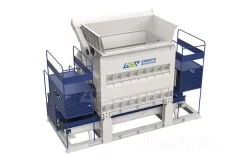
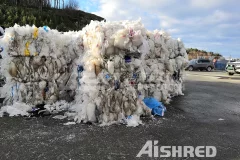
The customer is REPLAST SA, one of the largest plastics recycling companies in Norway, disposing of waste plastics PP PE HDPE, etc. for recycling of waste plastics. Equipped with a GD8 double-shaft shear shredder and a GSS20 European single-shaft shredder, with auxiliary equipment including a belt conveyor and iron remover; production capacity of approximately 5 tonnes per hour.Choose a Double-shaft shredder as the pre-processingAIShred's double-shaft shredders are driven by "two motors + two planetary reducers", which provide powerful, stable and low-noise operation. They are uniquely suited to the processing of flexible or brittle plastics.This plastic shredding line in Norway uses a double-shaft shredder as front-end disposal equipment, with a discharge size of roughly 10-20cm (slightly longer for flexible materials and slightly shorter for brittle materials). Choose a single-shaft shredder as the fine-processingAIShred's single-shaft shredders are high speed, high efficiency shredders that cut through

